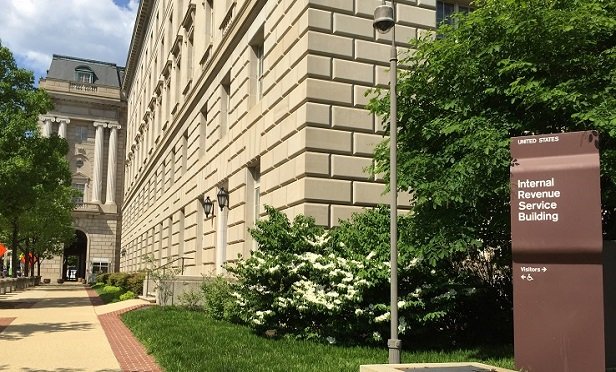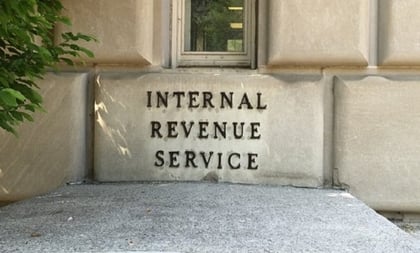 IRS headquarters in Washington. (Photo: Allison Bell/ALM)
IRS headquarters in Washington. (Photo: Allison Bell/ALM)
The IRS on Friday released details on expanded categories of individuals eligible for enhanced access to retirement distributions and loans under the CARES Act.
Notice 2020-50 includes expanding the categories of individuals eligible for these types of distributions and loans (referred to as “qualified individuals”) and provides guidance and examples on how qualified individuals will reflect the tax treatment of these distributions and loans on their federal income tax filings.
As authorized under the CARES Act, Notice 2020-50 expands the definition of who is a qualified individual to take into account additional factors such as reductions in pay, rescissions of job offers, and delayed start dates with respect to an individual, as well as adverse financial consequences to an individual arising from the impact of the COVID-19 coronavirus on the individual’s spouse or household member.
The CARES Act provides that qualified individuals may treat as coronavirus-related distributions up to $100,000 in distributions made from their eligible retirement plans (including IRAs) between Jan. 1 and Dec. 30, 2020.
(Related: Swedroe, Kotlikoff Warn Advisors to Prepare for Higher Taxes After Pandemic)
As the notice explains, a coronavirus-related distribution is not subject to the 10% additional tax that otherwise generally applies to distributions made before an individual reaches age 59 ½.
A coronavirus-related distribution can also be included in income in equal installments over a three-year period, and an individual has three years to repay a coronavirus-related distribution to a plan or IRA and undo the tax consequences of the distribution, the notice states.









 June 19, 2020 at 12:32 PM
June 19, 2020 at 12:32 PM











